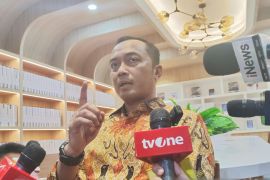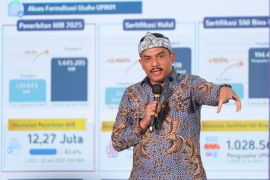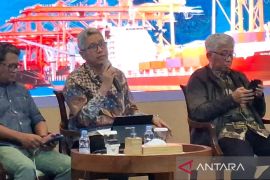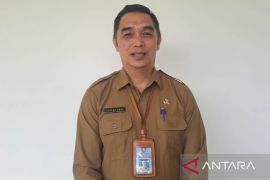The president gave the statement during a visit on Wednesday to the refinery, built in 1995 in Tuban, East Java, and made assurance that the plant is already operating optimally, according to a press statement from the presidential communication team.
President Jokowi admitted that the TPPI had earlier faced several problems and could not operate at its full potential to help meet the domestic energy needs.
He said the TPPI had commenced operations in 2006 using condensate from the state-owned oil company Pertamina.
"A problem then emerged as it could not pay for it. The issue spiraled into a legal case that prolonged for four years, and TPPIs operations had come to a standstill," he noted.
After knowing about it, Jokowi said at the time that he had immediately called for a settlement of the legal problem through a judicial process.
"With regard to business, it must continue to run. Our target (to commence its operations) at the time was October," he added.
In connection with this, the president visited the TPPI on Wednesday.
"I have conducted a check. Although it is still operating at 79 percent of its capacity, God willing, it will become fully operational by the end of this year," he affirmed.
He noted that with the TPPI becoming fully operational, the imports of gasoline could drop by up to 19 percent, and if the process at TPPI in Tuban is combined with the process of RFCC (residual fluid catalytic cracking) in Cilacap, the imports of gasoline could reduce by 36 percent.
"Meanwhile, diesel oil imports could drop by 40 percent. Later, by the end of the year, there will be no imports of diesel oil," he claimed.
The production process of regular gasoline, (known locally as premium), liquefied petroleum gas (LPG), diesel oil, and HOMC 92 (known as Pertamax 92) will be carried out at the TPPI in Tuban, and in future, the complex in Tuban will become Indonesias petrochemical industrial complex, he noted.
"It was a political decision taken at the meeting just now, and we hoped later all derivatives from the production process would be produced in this complex," he affirmed.
The derivatives, including paraxylene, orthoxylene, benzene, and toluene, are products needed by the nations industries.
"This will be the future of Indonesias petrochemical industry. So, it must not stop," he emphasized.
Pertaminas President Director Dwi Soetjipto stated that the TPPI refinerys operations will save US$2.2 billion per year from the reduction of fuel oils and LPG.
He remarked that the TPPI could produce 61 thousand barrels per day of premium, 10 thousand barrels per day of HOMC, and 11.5 thousand barrels per day of diesel oil in addition to 480 metric tons of LPG per day.
The benefits of TPPIs operations are certainly not limited to saving foreign exchange but also include others such as generating a positive sentiment on investment, manpower, and other multiplier effects.
The TPPI could process around 100 thousand barrels of condensate, or naphtha, per day to produce oil products, such as LPG, diesel oil, fuel oil, premium, and HOMC using mogas mode and petrochemical products, such as paraxylene, orthoxylene, benzene, and toluene using aromatic mode.
The recommencement of TPPIs operations will also monetize US$2.15 billion of investment that had been put before.
"No less important is that around seven hundred people will be employed again at TPPI, and around two thousand jobs around TPPI will be created as a chain effect of the plants operations," he added.(*)
Editor: Heru Purwanto
Copyright © ANTARA 2015











